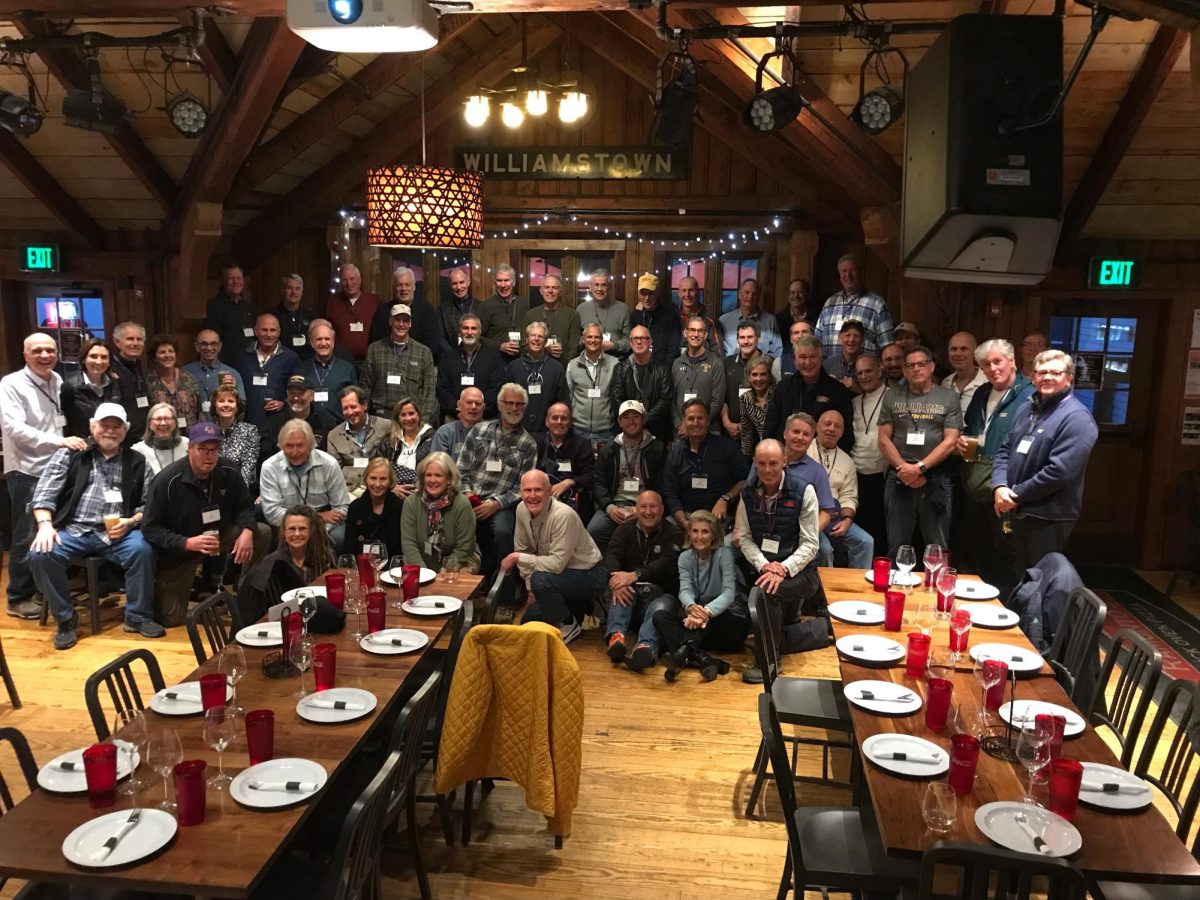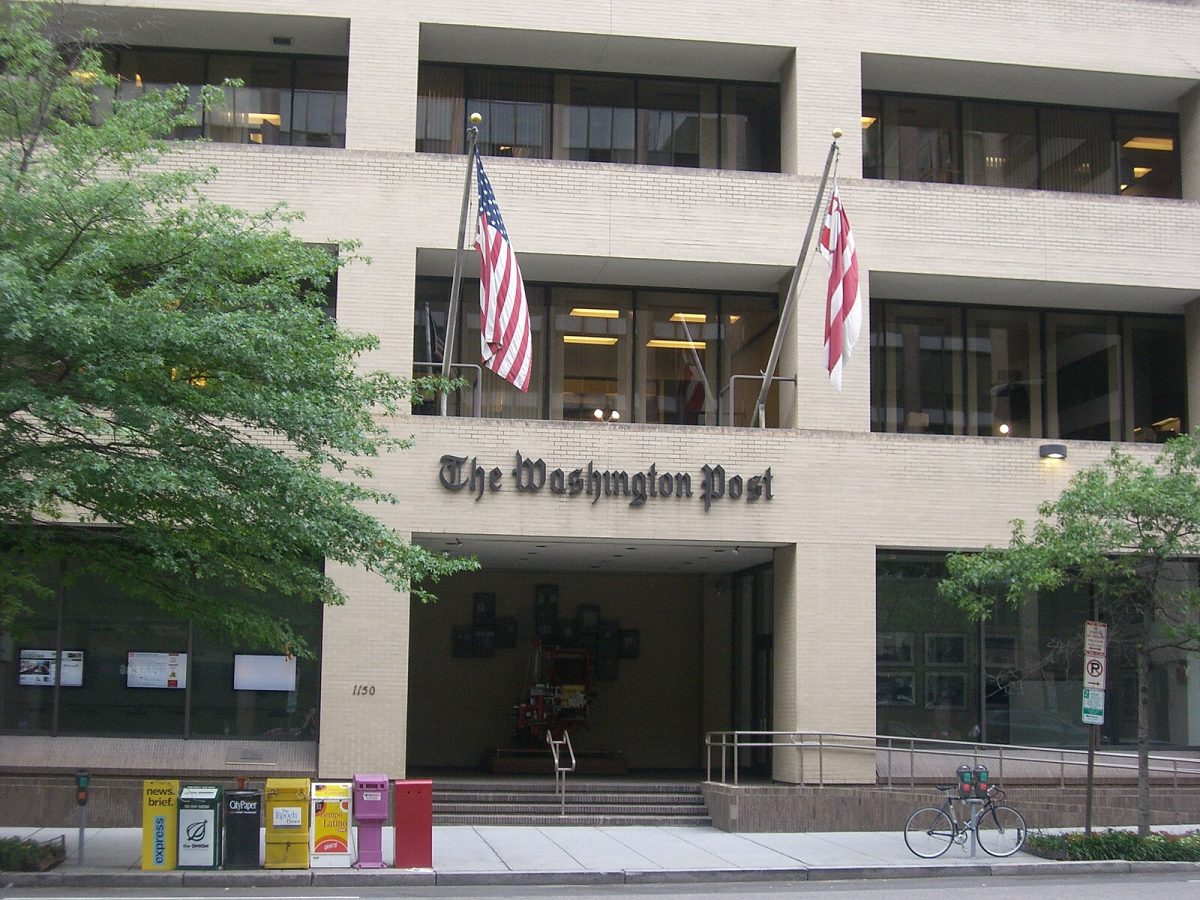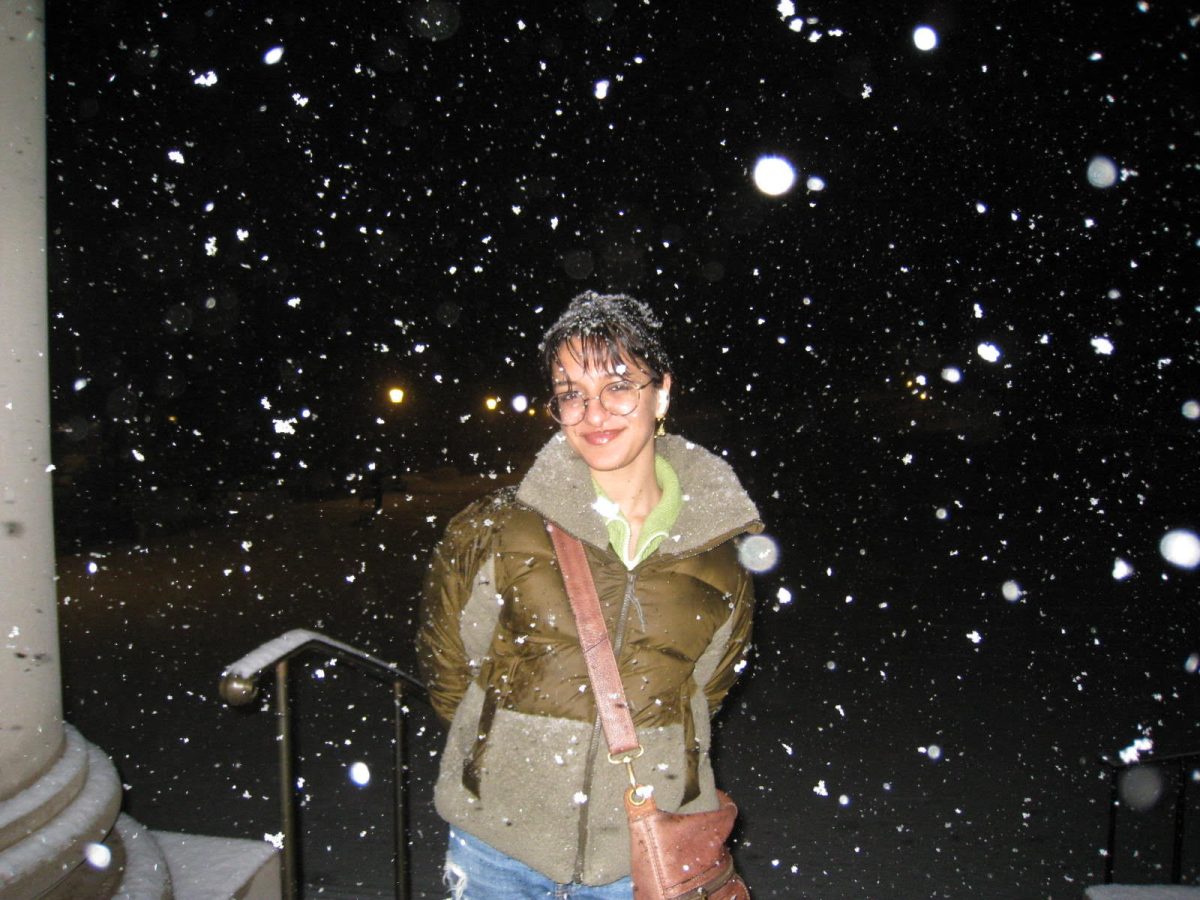
Spring has finally arrived in Williamstown — you can tell from the budding trees, the students basking in the sun on Chapin Hall steps, and the resurfacing of spikeball nets across Sawyer Quad. But alongside the joy at the hints of warm weather, a stressful question lingers in many students’ minds: “What am I doing this summer?”
Sometimes the task of answering this question can bear the weight of a fifth course. The pressure of the looming “real world” is all-consuming. However, for the Class of 2024, the question is of an even greater magnitude. It quickly transforms into, “What am I doing with the rest of my life?”
While the search for a post-graduation job will not definitively dictate someone’s life trajectory — the average person will change careers five to seven times during their working life — it is still undoubtedly daunting. For many graduates of the College, this will be the first time in at least 16 years that they will not spend their foreseeable future as a student.
In an effort to understand what members of the Class of 2024 are in for after crossing the graduation stage, the Record reached out to numerous students to hear about their post-graduation plans. Here are four of their stories.
Jack Davis ’24, who will be a ninth-grade English teaching fellow at Greenwich Country Day School, reflected on the intricacies of becoming a teacher after the College — a path that is not particularly common. Of the Class of 2023 graduates who responded to the ’68 Center for Career Exploration’s annual First Destinations Survey, only 6.1 percent said their first job was in K-12 education.
After teaching last summer at Breakthrough Collaborative, an educational equity program, Davis knew he wanted to get involved with Carney, Sandoe & Associates, a company that helps place students with undergraduate degrees in private schools that need to hire teachers. Although the College does not have its own programs to facilitate that process, the ’68 Center helped connect Davis with the company, he said.
Although a degree from the College does not allow aspiring teachers to work in most public schools, Davis credited his Williams education with preparing him to be an English teacher. “The courses that I took at Williams, and being a member of the track team, as well as JAAB, have been extremely helpful for me,” he said.
Tim Gore ’24 will also be pursuing a career in education, albeit through a different route. Gore is enrolling in a teacher residency program at Lesley University, where he will take courses toward a master’s degree in education while also student-teaching in a local public school. “One thing was really important to me — I didn’t want to just do a master’s program, but I wanted to get in the classroom and gain experience,” Gore said.
Despite echoing Davis’ sentiment about a lack of traditional resources for prospective teachers, Gore expressed gratitude for the classes and extracurricular programs offered at the College that have pushed him to be an educator. Specifically, he emphasized PSYC 372: “Advanced Seminar in Teaching and Learning” taught by Susan Engel, senior lecturer in psychology and director of the program in teaching, which provided him with a field placement at Lanesborough Elementary School. Gore was also able to expand his teaching experience through Center for Learning in Action community engagement programs at other local schools. Those opportunities were likely an asset to his resume when he was applying for graduate school, he said.
According to the post-graduate destinations survey for the Class of 2023, 26.4 percent of students entered the finance industry. Michael Davis ’24 will be following this common career path when he graduates from the College. In July, he will start as an Investment Banking Analyst at Goldman Sachs after exploring the finance industry throughout college.
As is typical in the finance industry, Davis started the long process for his post-graduate job midway through his sophomore year. He was selected to work at a firm for the summer after his junior year, which he enjoyed and planned to continue with after graduation. However, due to downsizing at the firm, Davis was pushed to change plans and underwent the application process for his post-graduate job this past fall.
While there is a strong relationship between a major in economics and a career in finance — nearly half of the economics majors from the Class of 2023 reported pursuing a job in the field immediately after graduation — Michael Davis said he had a different approach through his path as an economics and religion double major and a Jewish studies concentrator. “Studying religion and Jewish studies is like cross-training for [career interests] — getting deep into thinking about one thing ends up translating pretty well into something else,” he said.
A post-graduation job is not the only option the Class of 2024 will be pursuing — others will attend graduate school. Last year, 14.2 percent of Class of 2023 survey respondents said they would be continuing their education after Williams. Gwyn Chilcoat ’24 will pursue a doctorate in Earth and planetary sciences at UC Davis after she graduates, which she decided following internships in both research and corporate fields during her time at the College.
While Chilcoat’s professors initially dissuaded her from going straight into another rigorous academic program, they ended up being a critical support. “I realized that no matter what I did, the research is what I really liked,” Chilcoat said. “It was what I was most excited about.” Matching her enthusiasm, Chilcoat’s advisor, Associate Professor and Chair of Geosciences Phoebe A. Cohen, provided her with many connections within the field, Chilcoat said.
“Through [Cohen], I’ve been able to go to tons of conferences all over the country,” Chilcoat said. “She introduces me to everyone she knows — which has been over the course of three years.” Chilcoat emphasized how crucial those connections were for getting accepted into a doctorate program.
However, despite knowing many professionals in the field, Chilcoat lamented the difficulty of the graduate school application process. “It was a ton of work — like another class on top of my regular classes,” she said. “There’s no Common App like there is for undergraduates, and I struggled to find someone with knowledge on [the process].” Chilcoat suggested that going to a university with a larger graduate student presence might have made the application process easier. For example, an issue like nearly missing a funding deadline may not have occurred at a school with a larger support system for the process of graduate applications.
For some students, plans for after graduation do not materialize before the end of the school year. Six percent of respondents in the Class of 2023 survey were “still seeking employment.” Adages about bad job markets are not misplaced as an increasing number of people become college graduates and more apply for entry-level jobs due to recessionary trends, making the market for that age range particularly difficult. Underemployment — the idea that recent graduates are working in jobs that do not require their earned degrees — is also rampant.
However, both Executive Director of the ’68 Center Don Kjelleren and Associate Director of External Relations Scott LaChapelle hinted at optimism. “As far as we can tell, things look very good vis-à-vis what we saw last year and the year before,” Kjelleren told the Record about students’ career prospects.
The pair also emphasized the importance of creativity in students’ job searches. While graduates from the College might have their sights set on household names like Google and McKinsey & Company, it is important to look at other opportunities. Jobs of that sort will likely end up having more meaningful and informative work, they said. “There are definitely niche opportunities that are growing,” LaChapelle said. “It’s important that students are open-minded to those opportunities.”








